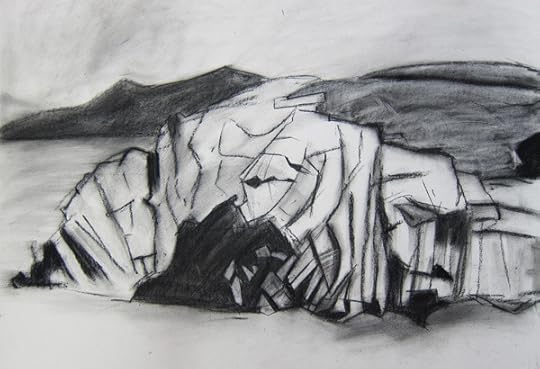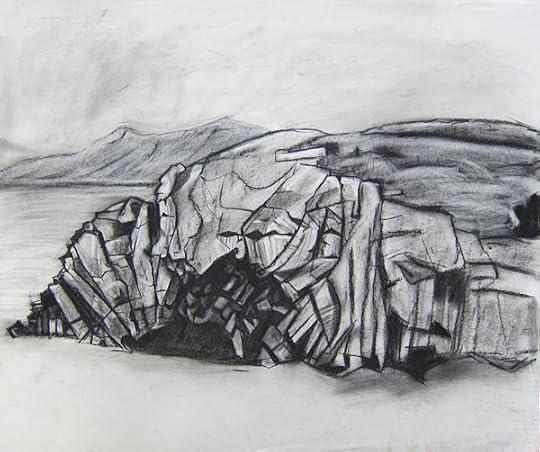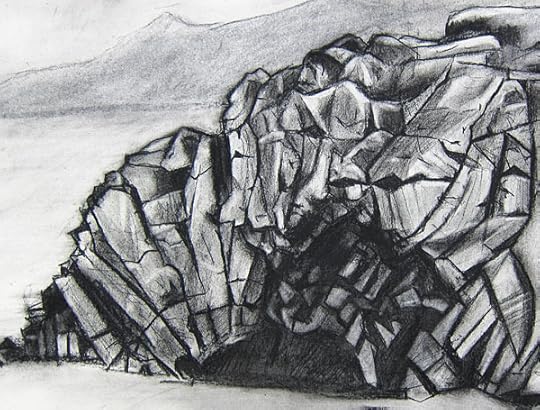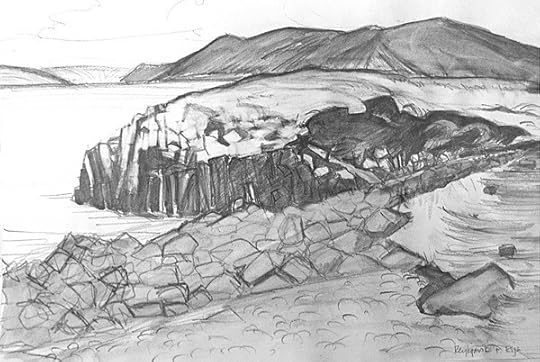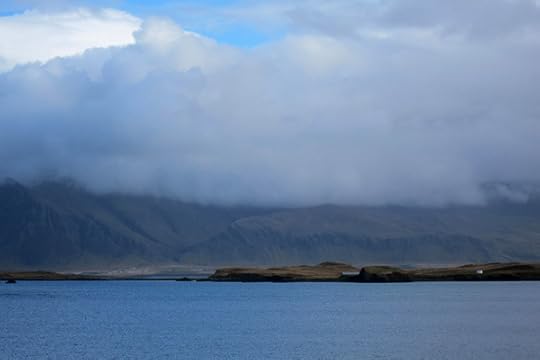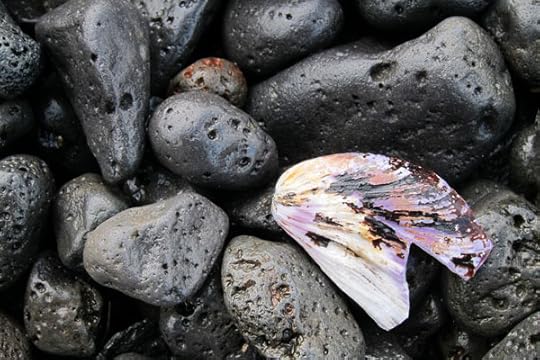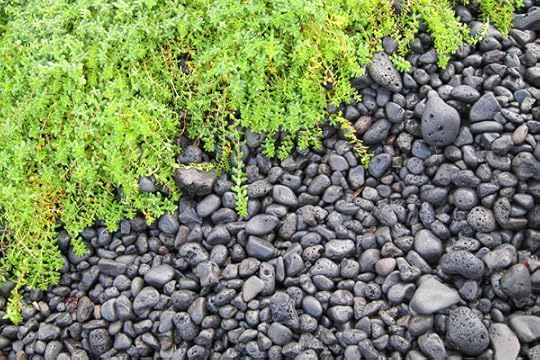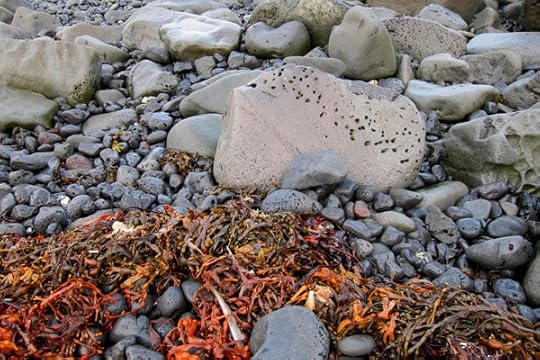Elizabeth Adams's Blog, page 109
November 4, 2011
Delight...
...is discovering that Luisa Igloria wrote a poem partly inspired by my artwork. It's over at Via Negativa, today.
Thank you so much, Luisa.
November 2, 2011
Reykjavik Rocks: a drawing in progress
Day 1
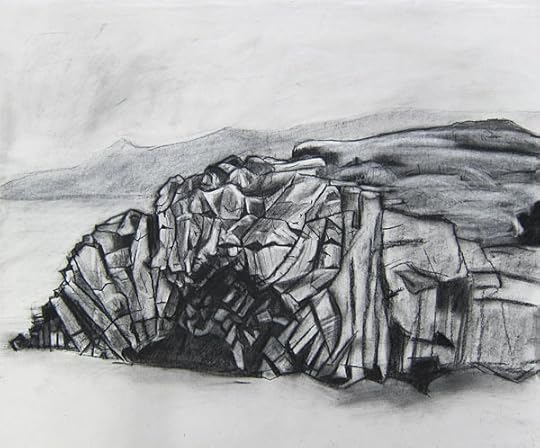
Day 2, second. The rocks about 2/3 finished; tomorrow I hope to finish the rocks on teh right and the turf above the rocks, and figure out what to do in the foreground. The charcoal drawing is fairly large, about 26 x 23".
Here's a somewhat closer view. I should show you what my fingers look like after an afternoon of this!
Montreal Anglicans and Occupy Protesters: A Different Approach
At our Anglican cathedral here in Montreal, I'm very pleased that just today, the Dean opened our undercroft kitchen for use by the Occupy Montreal food people 3 days per week.
J. and I have also both agreed to serve on a newly-forming social justice committee; we'll have our second meeting this Sunday. It feels better to be working in a group, trying to raise consciousness among the congregation, bearing public witness, and eventually taking real action. I want to help make the church and diocese politically responsible, as they should be, and to be a voice for those who have none.
October 31, 2011
A New Wrinkle at "Occupy London"
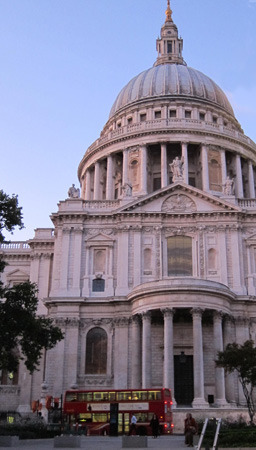 Over in London at Blaugustine, Natalie has a very good post about her take on what's happening between the Occupy protesters and their "hosts", St. Paul's Cathedral and the Church of England. St. Paul's Dean resigned today; he has been in favor of seeking an injunction to evict the protesters and has decided to step aside in order to allow other leadership to take over. My comment on Natalie's post states briefly what I think about this, but you can probably guess!
Over in London at Blaugustine, Natalie has a very good post about her take on what's happening between the Occupy protesters and their "hosts", St. Paul's Cathedral and the Church of England. St. Paul's Dean resigned today; he has been in favor of seeking an injunction to evict the protesters and has decided to step aside in order to allow other leadership to take over. My comment on Natalie's post states briefly what I think about this, but you can probably guess!
October 28, 2011
Back in the Studio
In spite of feeling tremendously excited by the landscape in Iceland, I've been having a hard time getting going on any artwork. I think I've needed to think about it, but I've also been setting my internal bar too high rather than just plunging in. I did this drawing (above) last week but it wasn't what I was aiming for at all -- this is a view of the same beach I posted about a few days ago. I kept the sketchbook open and studied the drawing everyday, and today I started over.
Until I start drawing, and thinking about what's emerging, I sometimes don't know what it is that I want to emphasize: what for me is the aspect of the subject that I find the most powerful or compelling. It may end up being a surprise, though I'm sure that my subconscious "eye" registered the information already -- the process of drawing becomes a process of simplification, of shedding layers of extraneous information, including the distracting or inaccurate story my mind has made up about the subject, until the most important kernel emerges. It can be quite a surprise.
I chose a different angle, and began drawing, and quickly this time realized what was important: predominantly the forms of the cracks in the rocks and the angles those cracks creat; secondarily, the interplay between the large skull-like white areas and the large shadows. The latter doesn't show very well in either of the following drawings - the size of all the black lines is too similar, but it will, I hope, when I'm done.
The final print will probably include more of the scene on the right. The large black shape at upper right will be broken up - that's turf on top of the rocks. But this is progress, and that feels good.
October 26, 2011
Near Reykjavik
These pictures were taken at an unmarked beach to the west of Reykjavik; we rode there, along the sea, on our bicycles just as the sun came out and a light rain ended. Reykjavik weather, we both heard and experienced, tends to be windy and drizzly; we saw a rainbow almost every day we were there. When we returned from this little trip, our friends told us the name of this place is "Castration Beach." We asked why, of course, and they ventured that it was where horses had been taken to be castrated. I think it's because all the rocks look like balls. Some definitely looked like they had come from the moon.
The long mountain across the harbor is Mt. Esja, which Reykjavik locals call their city mountain. In just five days we saw Mt. Esja in many moods; I agree that it's very beautiful.
October 25, 2011
Possibilities or futilities?
For four days, Qaddafi's body has been on public display. In a Muslim society, where burial is supposed to be immediate, this is an ultimate desecration. Here in the west, there is triumphalism, there is endless political analysis leading nowhere, but, au fond, it is the media on a rampage, a pack of dogs circling in for the kill. They show whatever pictures or videos they can acquire; nothing is too grisly, too inexplicable for children's eyes or damaging to their spirits; everything is fair game; no one is spared. Today's New York Times front page not only had videos and photographs of Qaddafi's end, but videos of the executions of Mussolini and Cercescu.
I didn't watch them. I am sickened by all of this, even though I see little. I am not arguing that Qaddafi or Hussein or their ilk were not crazy, murderous dictators who had committed unspeakable criimes against their own people, or that they did not deserve justice. What sickens me is the atttitude in America, where the public appetite for violence and sensationalism apparently has no limit, while our hubris is coupled with blindness to our own acts, to the blood on our own hands.
[image error]
Priam begging Achilles for Hector's body.
I'm reminded of imperial Rome, and the scene of Hector's death in the Iliad, many centuries before that. The Greeks, who gave us the word "barbarian" -- for them it meant "foreigner" -- were the barbarians that day. Achilles threaded sinews through Hector's ankles and dragged his naked corpse thrice around the walls of Troy behind his chariot, while Hector's wife and parents watched. Then Achilles, still mourning the death of his beloved friend Patroclus at the hands of the Trojans, refused to give up Hector's body for burial until King Priam, his aged father, came and begged on his knees for it. Rather than being a hymn of praise to the Greeks, the Iliad was, and remains (at least in my opinion) a poet's commentary on the folly of war, and a bitter insight into human nature.
But oh, the never-ending cruelty of victors, who always seem to feel their triumphalism is justified by the prior acts of those they kill! They make sure that the wheels of malice, war, and retribution remain well-oiled.
--
My dental surgeon left Romania as a young man shortly after the fall of Cercescu. His hygienist, who I visited this morning, is Moroccan; the dental assistants are Salvadorian and Iranian, the receptionist French-Canadian. They've all known something about minorities, repression, violence, disappearances. The office runs mostly in French, but there is always a flurry of other languages; it's one of the surgeon's hobbies. I speak to my hygienist in my limited French, and she replies in her limited English. We laugh; at 11:00 I opened my mouth for her, and said, "La leçon commence!"
But today, after we spoke about our recent trips --mine to Iceland and London, hers to New York, which she loved but where her language uncertainty made her afraid to use the subway -- I asked, "Penses-tu q'une paix est possible à la Libye?
She paused, the instrument poised in mid-air, and sat back, her eyes dark above her mask. Then she slowly shook her head. "It's very difficult," she said. "Dans toute la région, l'islamisme..." she gestured with her hands moving upward and raised her eyebrows: "il monte..."
"It's rising," I said.
"Yes," she said. "Et les jeunes ne l'aime pas."
"The young people don't like it."
"C'est ça. That's right. And the military, the dictators, don't like it. So...what do you do?"
This really is the impass facing the whole world. The problems are obvious, but what is the way forward when factions insist on their own ideologies as the answer, and those in power use it for greed and cronyism, rather than cooperating for the common good? Here in the west we may dress up in suits and speak formally rather than brandishing rifles, but how far have we come, really, from these tribes in the desert?
October 22, 2011
Yay, Bernie!
Proud to still be a Vermonter at heart, who helped elect Bernie Sanders, subject of a recent Guardian profile. It would be oddly ironic if this Senate outlier finally got famous. I'm glad he's calling on the Wall Street protesters to organize and get an articulated agenda, because Bernie knows talk ultimately doesn't get anything done, and doesn't get anyone elected. He should know - he's had a long track record of backing up his words with action, in a state known for its practicality and low tolerance for b.s.!
October 19, 2011
Chris Hedges Gets it Right Again
What kind of nation is it that spends far more to kill enemy combatants and Afghan and Iraqi civilians than it does to help its own citizens who live below the poverty line? What kind of nation is it that permits corporations to hold sick children hostage while their parents frantically bankrupt themselves to save their sons and daughters? What kind of nation is it that tosses its mentally ill onto urban heating grates? What kind of nation is it that abandons its unemployed while it loots its treasury on behalf of speculators? What kind of nation is it that ignores due process to torture and assassinate its own citizens? What kind of nation is it that refuses to halt the destruction of the ecosystem by the fossil fuel industry, dooming our children and our children's children?
"America," Langston Hughes wrote, "never was America to me.
I sometimes feel that Chris Hedges, a writer and thinker I greatly admire, allows his frustration to carry him a little too far with his rhetoric, but not this time, in this essay about the Occupy Wall Street movement, the only mass protest against the bankrupt corporate economic system that has a chance of succeeding. The protesters are not, however, traditional liberals who have sold out over the past few decades, in droves.
"Liberal reform", in its current incarnation, has meant an ineffecive Obama presidency, where most of his basic election promises, such as closing Guantanamo and ending the war, have failed to occur; and the passage, for instance, of a gutted universal health care bill - better than nothing, to be sure, but a very very far cry from what any moral social system in the developed world should be providing for its citizens. The environment, one of the most urgent issues facing the world, is so far back in the priority list there's no point even talking about it. Instead, the corporate-military collusion continues unchecked, and Americans are required to pay to support it while losing their own jobs, homes, and future. Impoverishing the people and draining the treasuries to support wars and the greed of the powerful is nothing new in human history -- read the Book of Kings, read about 5th century Athens, the list continues throughout the centuries -- but the scale of the global effect today certainly is. So is the scale of the immorality. The Toronto Star points out that more Americans (46 million) are now living in poverty than at any time since records were first taken more than 50 years ago. What has happened to democracy and its promises, which are supposedly based on equal opportunity? The first paragraph quoted above asks the real questions we should all be asking ourselves.
Since coming to Canada I've realized that the dismantling of American liberalism is not well understood or even acknowledged abroad, let alone at home. Part of the blame lies with the so-called left itself, while the discrediting and destruction of trade unions, for instance, has been a systematic and deliberate process by corporations and government working hand in hand. Here in Quebec, unions remain important, and strikes and protests are common; the government, which has many flaws, is still considered accountable to the people. Where in America today are the checks and balances against unfettered greed and power? Certainly not in the institutions that have traditionally provided them, as Hedges so rightly points out:
Liberal institutions, including the church, the press, the university, the Democratic Party, the arts and labor unions, set the parameters for limited self-criticism in a functioning democracy as well as small, incremental reforms. The liberal class is permitted to decry the worst excesses of power and champion basic human rights while at the same time endowing systems of power with a morality and virtue it does not possess. Liberals posit themselves as the conscience of the nation. They permit us, through their appeal to public virtues and the public good, to see ourselves and our state as fundamentally good.
But the liberal class, by having refused to question the utopian promises of unfettered capitalism and globalization and by condemning those who did, severed itself from the roots of creative and bold thought, the only forces that could have prevented the liberal class from merging completely with the power elite. The liberal class, which at once was betrayed and betrayed itself, has no role left to play in the battle between us and corporate dominance. All hope lies now with those in the street.
"Tiptoe to the Portals of Geothermal Hell"
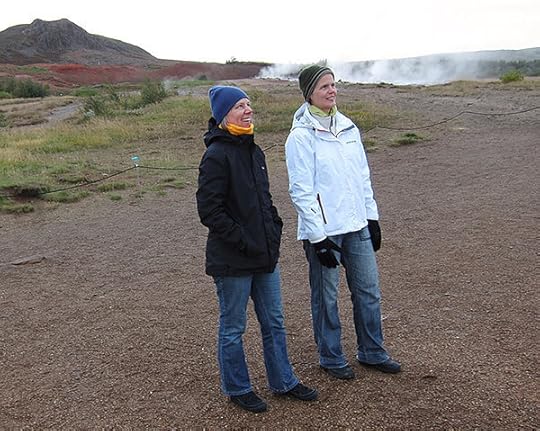
Watching Strokkur erupt -- photo by J.
That was the apt subject line of a letter from my friend G, after reading my "Fire and Brimstone" account of the hot springs and geysers in Iceland. In his letter, he described a trip to Yellowstone National Park, and how different his experience of similar phenomenon had been. I've revised my previous post to include his comments, and have also added two photographs from J. showing Elsa and me watching Strokkur erupt (above)-- and an eruption itself. And I'm submitting the whole revised post for this month's anniversary issue of the Language/Place Blog Carnival, hosted by the incomparable Dorothee Lang, whose subject is "Streets, Signs, Directions." Please take a look, and visit the blog carnival when this issue is published at the end of the month -- I think it's one of the most interesting projects of its kind right now.

